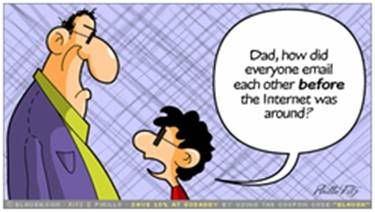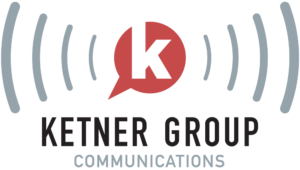 I’ve been in the PR business, specifically working for high tech PR agencies, since the beginning of my career. If you’ll allow me to reminisce, the year was 1999 and, oh, how different things were! PR agencies were recruiting new college graduates left and right to support their booming businesses. At that time, high tech companies were willing to pay PR agencies very large monthly retainers to get ahead of the competition. Each team member had their place on account teams – even on down to the low man/woman on the totem pole who was in charge of cutting hard copies of every single media clip for the client, gluing the article to a brand new white sheet of paper (with a sticker of the agency logo at the top left hand corner, of course) and put all of them in large clip books for the client.
I’ve been in the PR business, specifically working for high tech PR agencies, since the beginning of my career. If you’ll allow me to reminisce, the year was 1999 and, oh, how different things were! PR agencies were recruiting new college graduates left and right to support their booming businesses. At that time, high tech companies were willing to pay PR agencies very large monthly retainers to get ahead of the competition. Each team member had their place on account teams – even on down to the low man/woman on the totem pole who was in charge of cutting hard copies of every single media clip for the client, gluing the article to a brand new white sheet of paper (with a sticker of the agency logo at the top left hand corner, of course) and put all of them in large clip books for the client.
Technology-wise, in 1999, I got my very first cell phone to go along with my new “grown-up job” working as an account coordinator for a large PR firm in Dallas. I believe it was one of those cute Nokia 5100s – probably a red one. I’m fairly certain that I was using AOL as my Internet provider, e-Commerce was the next big thing, and Google was on its way to becoming a household name. I was single, childless and living in a world where technology innovation was at an all-time high.
The year is now 2011, and our world is so completely different. Technology is cooler, faster, and smaller! No longer do you need a desktop or a laptop – tablets and smart phones are all the rage. Anything you need to know you can practically access it from your iPhone, iPad, or Android. Social media has become a way of life, and now, consumers can actually purchase products and services right from their smart phones. The majority of my co-workers are of Generation Y, or Millennials, a generation who grew up in the age of technology innovation. Over the past four years, I have had to adapt to the *new* way of doing my job at Ketner Group – starting with ditching those large clip books! I now work half of the time via my smart phone and have learned how to use Twitter, Facebook and LinkedIn so that I can help my clients implement the best social media strategies. There are a lot of things that I don’t know, but I’m learning, with the help and encouragement of my Millennial co-workers.
Things are also different in 2011, compared to 1999, because I’m a different person. I am now a wife, a homeowner and a mother raising the next generation – Generation Z or the Net Generation. This generation was not only born during the most recent technology boom, but they are learning how to use those technologies at a younger age compared to previous generations. My six-year-old daughter learned how to use a laptop when she was two. My two-year old son can play games on my Android phone. When I take a picture of my kids with my smart phone, my daughter always asks me if I’m going to post it on Facebook. I often wonder what new technologies my children will be using (or perhaps creating!) as they get older. What will social media look like in 10 years? Will we all be working via a 3D tablet device while the desktop and laptop find homes in junkyards and museums? When we go shopping, will the shopping experience be something like the Tom Cruise movie “The Minority Report” where hologram employees greet us with personal welcomes and promotions as we walk in the store?
Ragan’s PR Daily recently did a study which concluded that most young people would give up their sense of smell before technology. According to the report, social media has already impacted the way younger generations relate to the world around them:
“Social media is having a powerful (and somewhat paradoxical) role in the quest for doing the right thing. On a personal level young people believe they have a strong notion of the difference between right and wrong…but this is increasingly informed by the values of the Internet. Their new moral framework will continue to transform everything around us from the laws that govern our lives to our workplaces.”
Since the beginning of time, man has always found a way to do things better, faster, stronger. It’s just the natural progression of things – and the report by Ragan’s PR Daily is a true mirror to the fact that the younger generations depend greatly on technology, enough so that they would (in theory) give up their sense of smell. I for one don’t need my technology that much – but for Gen Y and Gen Z – it has become (and will become) a large part of who they are and how they live. Old school video stores (a la Blockbuster Video and the like) are on their way out – now we have Redbox and Netflix. We no longer make trips to the record store, but rather buy our favorite songs and albums at the click of a button. The old way of doing things is just too slow and just not as efficient.
But I wonder, is it possible that the old way of doing things can sometimes be just as good, too? I think it can be, and that’s what I’m trying to teach my kids, who are a part of Gen Z. I hope that their moral framework is based on the values of what my husband and I have taught them and not reality TV or what their friends are saying on Facebook and Twitter. I hope that my children will always appreciate the meaning and tradition behind writing hand-written thank you notes instead of an email, or that they will always make time to call or visit their parents instead of sending text messages. I know that I have a large challenge in front of me, raising children who will probably be 10 times smarter than me – but I’m pretty sure that we can find a way to make the new and old live under the same roof. Do you agree?
 I’ve been in the PR business, specifically working for high tech PR agencies, since the beginning of my career. If you’ll allow me to reminisce, the year was 1999 and, oh, how different things were! PR agencies were recruiting new college graduates left and right to support their booming businesses. At that time, high tech companies were willing to pay PR agencies very large monthly retainers to get ahead of the competition. Each team member had their place on account teams – even on down to the low man/woman on the totem pole who was in charge of cutting hard copies of every single media clip for the client, gluing the article to a brand new white sheet of paper (with a sticker of the agency logo at the top left hand corner, of course) and put all of them in large clip books for the client.
I’ve been in the PR business, specifically working for high tech PR agencies, since the beginning of my career. If you’ll allow me to reminisce, the year was 1999 and, oh, how different things were! PR agencies were recruiting new college graduates left and right to support their booming businesses. At that time, high tech companies were willing to pay PR agencies very large monthly retainers to get ahead of the competition. Each team member had their place on account teams – even on down to the low man/woman on the totem pole who was in charge of cutting hard copies of every single media clip for the client, gluing the article to a brand new white sheet of paper (with a sticker of the agency logo at the top left hand corner, of course) and put all of them in large clip books for the client.